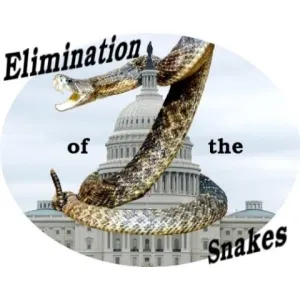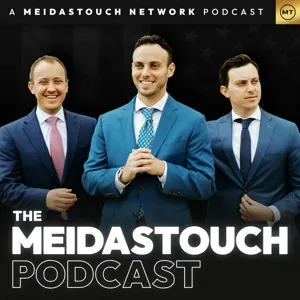Podcast Summary
ESG Investments and American Politics: Republicans criticize ESG funds for potential misalignment with investors' financial interests and lack of transparency in use of retirement funds for socially progressive investments
The use of everyday Americans' retirement funds for Environmental, Social, and Governance (ESG) investments without their knowledge or consent has become a contentious issue in American politics. ESG funds, which aim to invest in companies that meet certain socially progressive criteria, have been criticized by some Republicans for potentially not aligning with the financial interests of the investors. The funds, managed by firms like BlackRock, Vanguard, and State Street, can vote on various issues, including racial equity audits and environmental constraints, without the approval of the individual investors. This lack of transparency and potential misalignment between investors' values and the use of their funds has sparked political debate. It's important to note that the validity of these criticisms and the effectiveness of ESG investing are subjects of ongoing debate.
From socially responsible investing to ESG: ESG investing evolved from socially responsible investing, where investors avoided certain industries or companies, to a modern approach where investors consider a company's impact on society and the environment, aiming to invest in good companies and earn financial returns.
ESG (Environmental, Social, and Governance) investing, which involves considering a company's impact on society and the environment in addition to financial performance, has its roots in socially responsible investing that emerged in the 1970s. Back then, investors avoided companies involved in controversial practices like supporting apartheid in South Africa, producing tobacco, or manufacturing weapons. Milton Friedman famously criticized this approach, arguing that businesses should solely focus on maximizing profits. However, in the 1990s, the idea that businesses could do good and generate profits simultaneously gained traction, leading to the popularization of ESG investing. The UN Global Compact first used the ESG acronym in 2004 to encourage the finance industry to incorporate environmental, social, and governance goals into asset management and investing. Today, individual investors increasingly seek to invest in good companies and avoid bad ones while also earning financial returns.
ESG Investing's Growth and Its Impact on Corporations: While ESG investing has seen tremendous growth with trillions of dollars under management, research indicates that its impact on corporations' environmental, social, and governance progress is minimal.
During the 2000 tens, there was a significant increase in the number of funds identifying themselves as Environmental, Social, and Governance (ESG) funds. Additionally, ESG ratings agencies emerged, ranking companies based on various ESG criteria, which led to the creation of numerous ESG funds using computer algorithms for optimization. Today, there are trillions of dollars under management by these ESG funds. However, the evidence suggests that in practice, ESG investing does not significantly contribute to environmental, social, or governance progress among corporations. Despite this, Mint Mobile offers wireless plans for just $15 a month, and FX's The Veil is an international spy thriller streaming on Hulu.
ESG Funds: Different Agencies, Different Rankings: ESG funds have varying standards and evaluations from different rating agencies, leading to inconsistent company rankings and potential inclusion of questionable companies.
There is no strict definition or regulatory body enforcing the label of ESG (Environmental, Social, and Governance) funds. These funds, which focus on companies with environmentally and socially responsible practices and good governance, are mainly ranked based on evaluations from various rating agencies. The companies included in an ESG fund can differ significantly depending on which agency a fund follows. For instance, Tesla, which MSCI ranked as the top auto industry company on ESG issues, was ranked as the worst carmaker globally by FTSE, and was in the middle by Sustainalytics. This inconsistency can lead to the inclusion of companies like ExxonMobil or McDonald's in ESG funds, despite their questionable environmental or social records. The ESG label combines three distinct areas, and there's no necessary connection between them. As a result, investors should be cautious and carefully consider the specific ESG fund's methodology and the rating agencies it relies on before making investment decisions.
ESG Funds: Beyond the Hype: While ESG funds may seem attractive due to their focus on good corporate practices, they often charge higher fees and may not outperform. It's crucial to evaluate a fund's composition, fees, and a company's individual ESG performance before investing.
While the concept of good governance in companies is well-defined and has a long history, investing in Environmental, Social, and Governance (ESG) funds based on the assumption that they will outperform may not be valid. ESG funds often resemble typical index funds in their composition, with large holdings in companies like Apple, Microsoft, and JPMorgan. These companies may not be leading the way on environmental and social issues, but rather have low environmental impact due to the nature of their businesses. The higher fees associated with ESG funds are another consideration for individual investors. It's important to note that the primary motivation for the growth of ESG funds may not be mutual fund companies' commitment to doing good, but rather their ability to charge higher fees. The discussion also highlighted the complexity of evaluating a company's ESG performance, as a company can have good governance but poor environmental or social practices, and vice versa. An example given was Tesla, which historically had poor governance structures. Overall, the decision to invest in ESG funds should be based on a thorough understanding of the specific fund's composition, fees, and the company's ESG practices.
The Complexity of ESG Investing: Effective or Distracting?: Individuals can make a difference by doing their research and avoiding investment in companies that don't align with their values, while government regulation remains essential for addressing major issues like climate change.
The debate surrounding Environmental, Social, and Governance (ESG) investing can be complex and nuanced. While some argue that ESG investing is an effective way for corporations to address environmental and social issues, others criticize it for being vague and potentially ineffective. Some even suggest that the focus on ESG could distract from the need for government regulation. However, it's important to note that the criticism of ESG investing from certain political factions may inadvertently lead to policies they don't support. Instead, a more straightforward approach to socially responsible investing might be more effective. By doing the research and avoiding investment in companies that don't align with one's values, individuals can make a difference without the potential pitfalls of ESG investing. Additionally, government regulation remains crucial in addressing major issues like climate change, which is unlikely to be solved solely by the corporate sector.
ESG Investing and Market Outperformance: ESG investors may not outperform the market due to limited investment options and trade-offs between ethics and returns.
It can be challenging for ethical investors to outperform the market. James Surowiecki, a contributing writer at The Atlantic, discussed this topic in relation to Environmental, Social, and Governance (ESG) investing. He pointed out that there are mutual funds and ETFs that allow investors to avoid fossil fuel companies or focus on deep green investing with rigorous environmental and social standards. However, the returns from such investments may not be higher than the market average due to the limited range of companies an investor is willing to consider. Surowiecki suggested that investors should let go of the notion that they can both outperform the market and invest only in companies they ethically approve of. Instead, they should recognize the trade-offs involved and make informed decisions based on their values and financial goals. This perspective challenges the common assumption in the ESG industry that ethical investing leads to superior returns.





